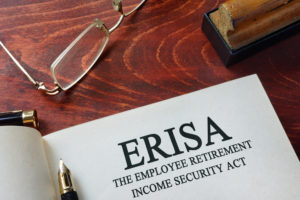
By Guest Author, Evelynn Passino, J.D. – Executive Director of Settlement Solutions National Pooled Trust
Clients with public benefits often face a conundrum as their case settles: after years of litigation, they are finally receiving funds which they desperately need, but receipt of those funds will cause them to lose public benefits which they also need. This is because some benefits, such as Supplemental Security Income (SSI), Medicaid, Supplemental Nutritional Assistance Program (SNAP) benefits, and housing benefits, are means-tested. Means-tested benefits (also known as needs-based benefits) have asset and/or income qualifications in addition to other qualifications, such as having a disability or serious medical need. These restrictions vary from program to program but typically a person’s financial resources must be very low as these programs are intended for people at or near the poverty line. A personal injury recovery is generally considered a countable resource, so receipt of funds over the limit will cause a person to lose benefits at least temporarily until the funds are spent.
One common method of dealing with this issue is to use a first-party special needs trust (SNT). An SNT is a trust authorized by federal law (42 USC 1396p(d)(4)(a, c)) to be an exempt resource for public benefits eligibility purposes. This means the funds in the trust are not counted as income or an asset so long as the trust is properly drafted and administered. One of the most important requirements of a special needs trust is that the beneficiary not be the trustee and that the trust be irrevocable which means they do not have direct control over the funds and do not have the ability to “cancel” the trust. This lack of control is ultimately why it is not a countable resource; however, this is often one of the biggest sticking points for clients and understandably so.
Because these are trusts are meant to supplement, not replace, public benefits, there is also a general requirement that the trust not pay for anything another benefit can pay for. For example, if a beneficiary receives SSI, which is a monthly check meant to cover food and shelter expenses, then the trust cannot contribute to these expenses without causing a reduction in their benefit. Considering the maximum SSI payment for a single person is a mere $794 (as of 2021), we, as trustees, often hear from beneficiaries that their SSI check is not sufficient to for those monthly living expenses. If the trust does contribute to these costs, the person’s SSI check is reduced by up to 1/3 of the federal benefit rate, plus a $20 general income disregard ($284.67 in 2021). In many cases, it makes sense for the trustee to disburse funds for these expenses, despite the general requirement not to pay for things another benefit can cover, because it can drastically improve the beneficiary’s quality of life and often outweighs the reduction. However, trustees generally try to avoid this wherever possible so the beneficiary can continue to get their full SSI check.
Fortunately, there is a way for some people to both get their full SSI check and use funds to pay for food and shelter. The Achieving a Better Life Experience (ABLE) act, passed by Congress in 2014, authorized the creation of ABLE accounts. An ABLE account is an exempt resource, similar to a special needs trust, but is more like a bank account held and managed by the client. No attorney involvement is needed, and the client can set it up by themselves online in a matter of minutes. ABLE accounts are available in all fifty states. One of the biggest benefits of ABLE accounts is that the distribution standard is much broader than an SNT. Funds can be used for any “qualified disability expense” which is defined broadly and specifically includes food and shelter expenses.
There are, however, two limitations which have kept these accounts from being used widely. The first is that ABLE accounts can only be created by people who experienced the onset of a disability (even if not formally diagnosed) before age 26. There have been efforts to get the onset age increased, or get rid of the age requirement altogether, but at this time that limitation still applies. The second limitation is that currently only $15,000 can be added to an ABLE account per year. For smaller settlements, a special needs trust may not be needed at all and instead an ABLE account may be created. However, many recoveries exceed $15,000, requiring either a spend down plan or SNT.
Additionally, in many instances with a settlement, SNTs and ABLE accounts can be used together successfully to provide more flexibility. The bulk of the recovery can be placed into the SNT which can then make periodic disbursements to the ABLE account. Once in the ABLE account, the beneficiary can use the funds for food and shelter expenses, or any other qualified disability expense.
As an example, take a person who is receiving $794 per month in SSI, but their rent is $1,000 per month, utilities are $150 per month, and their grocery bill is $300 per month. After applying $794 toward their rent, they would still fall short by $656 (assuming they have no other benefits). If the trust contributes to these bills, the SSI check will be reduced by $284.67, so the trust will end up paying well over $900 to cover everything. This is still in the beneficiary’s best interest, but using an ABLE account prevents the SSI reduction. If the SNT deposits $656 into the ABLE account, then the full $794 SSI check can go to the rent, and the beneficiary can then use the $656 in the ABLE account to pay the rest of the bills. It takes some planning, but the funds remain exempt from being countable the entire time and the beneficiary gets their full SSI check while using the funds in the trust to improve their standard of living.
In addition to keeping more money available for the beneficiary’s long-term needs, preserving SSI eligibility can be vital because Medicaid eligibility can sometimes be tied to SSI eligibility. Using the example above, but instead of $794 per month in SSI, the person receives only $200. If the trust contributed more than $284.67 to the rent, utilities, or groceries, the SSI check would be reduced to $0. If the person’s Medicaid eligibility is based on their SSI eligibility, then they would also lose Medicaid that month. For many clients, Medicaid coverage is critical, so using an ABLE account protects them on that level as well.
Finally, while SNTs play an important role in helping people with disabilities protect and preserve their money, they can be invasive. An SNT trustee is responsible for keeping detailed records about what was purchased, requiring receipts and invoices for every disbursement. For someone who is using their SNT to pay for the majority of their expenses, the trustee is privy to many intimate and private details of the beneficiary’s life. This is another area where ABLE accounts are helpful. Since the client has control over the account and is responsible for maintaining their own records, ABLE accounts also promote independence and can help a beneficiary protect their privacy. Additionally, many ABLE accounts allow account holders to transfer funds out of the account and into a private bank account, allowing the beneficiary access to cash. The beneficiary is still responsible for maintaining records and spending the money quickly (if the money is kept into the next calendar month, it may become a countable asset), but this provides flexibility for cash-only transactions, such as the purchase of medical marijuana. SNTs generally will not disburse cash or any funds directly for this purpose due to marijuana being a Schedule 1 drug. Some trustees require beneficiaries to submit their ABLE account receipts to the trust, but this is not explicitly required by any rule or regulation.
Every settlement and every client’s needs are different, so special needs trusts and ABLE accounts will not be right for every client. We remain hopeful that the existing age and deposit limitations on ABLE accounts will be eased in the future, but at this time the combination of a special needs trust and ABLE account remains the best option for preserving benefits eligibility, protecting a recovery, and providing some much-needed flexibility.

Jason D. Lazarus is the managing partner and founder of the Special Needs Law Firm; a Florida law firm that provides legal services related to public benefit preservation, liens and Medicare Secondary Payer compliance. He is also the founder and Chief Executive Officer of Synergy Settlement Services, which offers healthcare lien resolution, Medicare secondary payer compliance services, public benefit preservation and complex settlement consulting.











Comments for this article are closed.